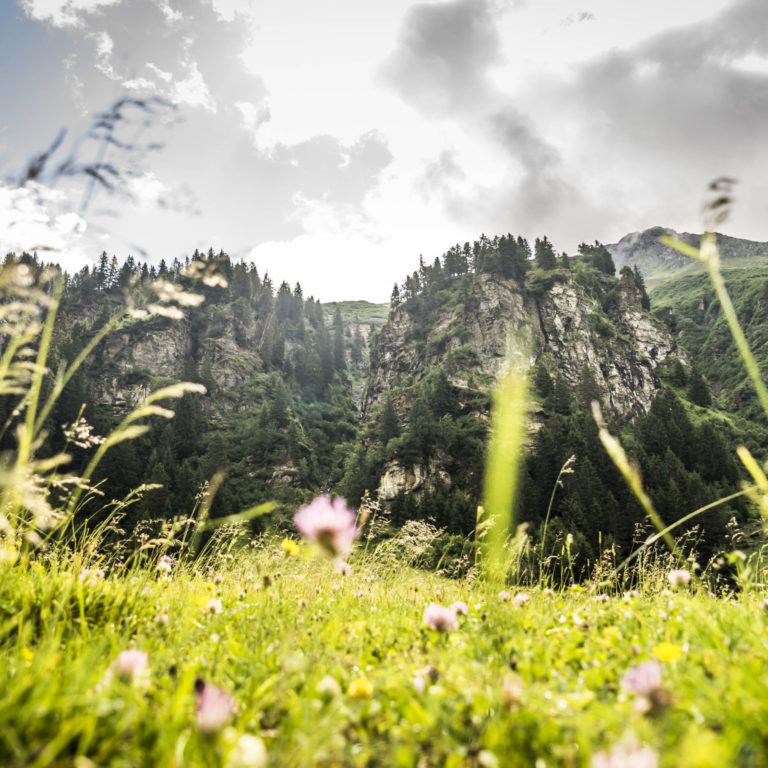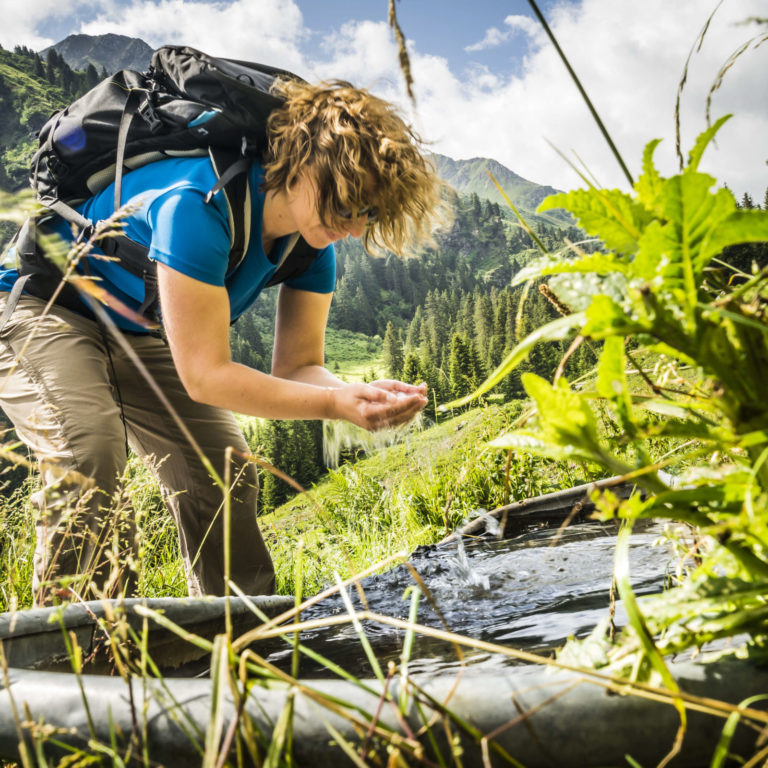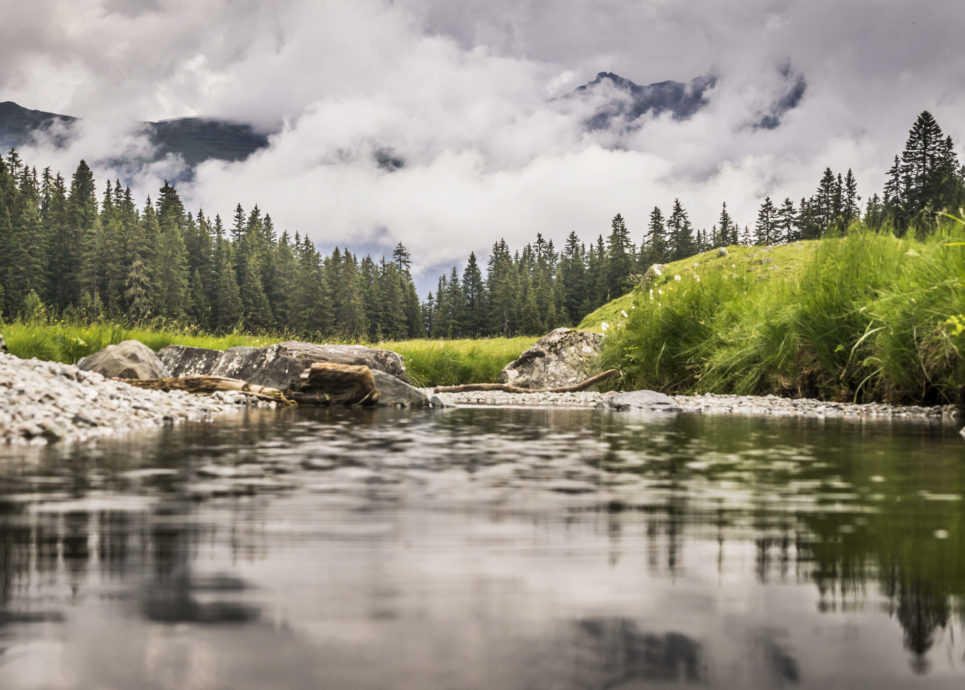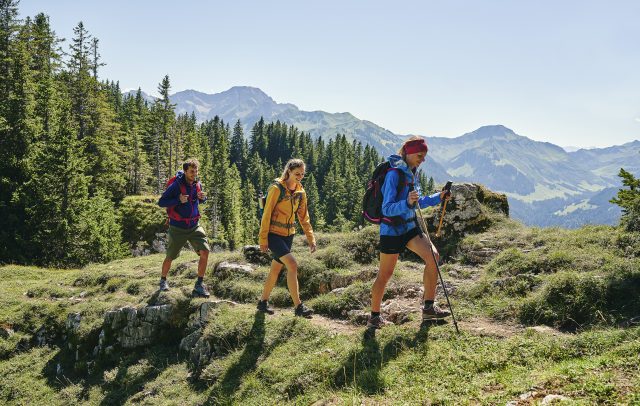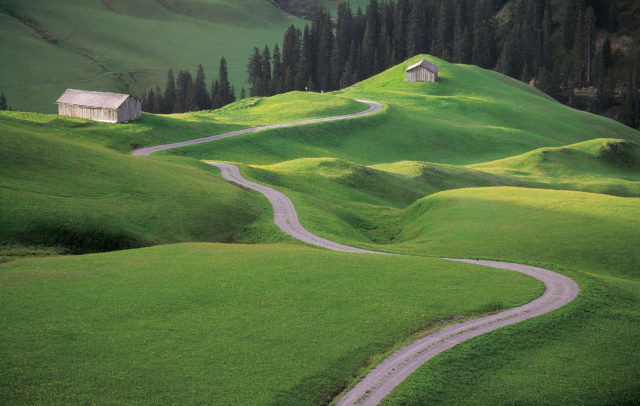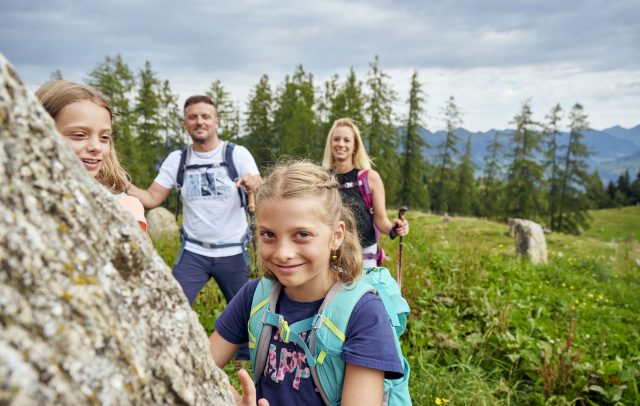A good deed for body and mind
Hiking is the best medicine
It has long since been known that exercise in the great outdoors is healthy. Yet, why does hiking make us happy? Prof. Reinhard Haller, psychiatrist, has some thrilling, scientifically proven answers.
Whereas the positive effects of hiking on physical health have been well researched, far too little is still known about its effect on the psyche. Like all endurance sports, hiking boosts our physical fitness and leads to a general increase in performance. It improves the metabolism, strengthens the immune and hormone systems, promotes muscle strength and endurance, prevents osteoporosis and atony of the skin, stimulates formation of the blood and is the best means for achieving weight reduction. A medicine that could contain all the effects of hiking regularly would be the epitome of the magic bullet and the bestselling pharmacological drug ever. Hiking also has a positive effect on health in general by improving sleep, promoting a sense of well-being and having relaxing properties.
Psychogeographics has proven how much landscapes can leave their mark on the nature of a person and determine their emotionality. Many landscapes are familiar to us, others make us feel sad and melancholy, still others give us a feeling of security and inner peace, or even of longing and a feeling of awakening. Moreover, hiking accommodates today’s widely-held need for a life in harmony with nature, for a reduction to the essential and individual freedom by means of simple needs. The slow-travel movement has not only discovered the feeling of slowness, it has also turned the journey into the destination itself. Hiking results in the psychological intensification of all the senses, to the mental consolidation of thoughts and emotions. To paraphrase the passionate hiker Johann Wolfgang von Goethe:
„You have only really been there if you walked there.”
The effects of hiking on the biology of the brain are scientifically proven, affecting the central reward system in particular. The constant physical exertion activates several areas of the brain which communicate via the chemical messenger dopamine in a similar fashion to how this can be achieved by hypnosis, autogenic training and meditation techniques. The brainwave activity is regulated in a similar way by hiking and these therapeutic relaxation methods.
A precise psychological analysis demonstrates that hiking largely fulfils the main objectives of psychotherapy, which are connection with nature, orientation in the internal and external landscape, the attainment of pleasure you get from a runner’s high and high-altitude euphoria, the avoidance of un-pleasure triggered by angst and depression, the increased sense of self-worth you get from a sense of achievement, the distancing from daily worries, the development of new perspectives and, ultimately, the attainment of a sense of tranquillity. What is better for our sense of self-worth than conquering a mountain peak, what bestows us with a greater sense of tranquillity than observing a far-off toy world from a scenic loftiness? Hiking helps us to distance ourselves from our daily problems, and puts our cares and worries into perspective. We can wend our way to new worlds, including those inside us.
A pill that contains all the effects of hiking regularly? It would be the epitome of the magic bullet – a bestseller.
Hiking incorporates various psychotherapeutic techniques and therapy methods which we would otherwise have to pay for, at least to a certain degree:
Hiking is an excellent physical therapy. Drug addicts who frequently suffer from the feeling of alienation from themselves (“my body doesn’t belong to me”) suddenly reconnect with themselves: in the beating of their heart, in the blowing of their lungs, in the tensing of their muscles. Hiking is inevitably associated with the conscious breathing-in of air, meaning it has a similar effect to a breathing therapy. Hiking results in slowing down, in an awareness for the here and now, in letting go.
Since hiking through the open countryside and across the mountains is also a hike to your inner self, it offers a good setting for an internal discourse, a psychotherapeutic technique whereby the subject talks about a problem in an exchange with themselves. By converting our emotions into physical energy, hiking reduces the level of frustration, and presents a firstclass anti-aggression therapy. Like all endurance sports, hiking is a natural remedy for all forms of depression. Every 30 minutes’ constant exertion increases the levels of the chemical messengers serotonin and noradrenaline, which are reduced in people with depression. At the same time, endurance sport results in natural euphoria.
Recent scientific examinations have proven that three hiking sessions per week have a similar effect to that achieved by high-potency psycho-pharmaceuticals amongst people with depression. Conclusion: hiking is also one of the most effective prevention and therapy options for burnout. Incidentally, the great Danish philosopher Søren Kierkegaard, who himself suffered from depression, also came to this conclusion, summing it up in writing thus: “My best thoughts came to me walking, and I know of no problem that cannot be walked off.” A study performed at the University of Salzburg has proven that hiking strikingly improves the prognosis in suicidal patients.
Hiking promotes creativity and reduces stress.
Also scientifically proven is that hiking stimulates our creativity. Simply encountering new landscapes, breathing freely in the open countryside and inspiring our imagination by means of the beauty of Mother Nature imparts us with a plethora of new ideas, and opens up previously unknown dimensions of feelings. This would make hiking into one of the most effective psycho-pharmaceuticals if we could compress all of its effects into one tablet. Which would be a shame, since hiking, especially in the mountains, is far too beautiful to experience to reduce it to a chemical substance.
None of these explanations are the sheer romanticising of opinions or make false claims regarding curative effects. The experience of nature and hiking cannot perform miracles, yet have a great deal of psychotherapeutic functions. I am not saying this after my many years’ experience as a psychiatrist and psychotherapist because I have so little respect for psychotherapy but because I have so much respect for hiking – specifically in the mountains.
Biography
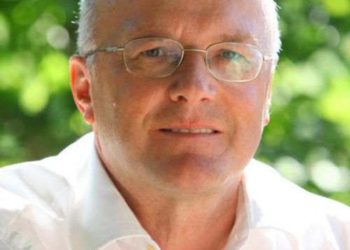
Prof. Reinhard Haller, born in Mellau in the Bregenzerwald in 1951, is one of the most renowned psychiatrists,
psychotherapists and neurologists in Austria. Research into addiction is the main focus of his work. Reinhard Haller has also gained renown as a court-appointed psychiatric expert.

